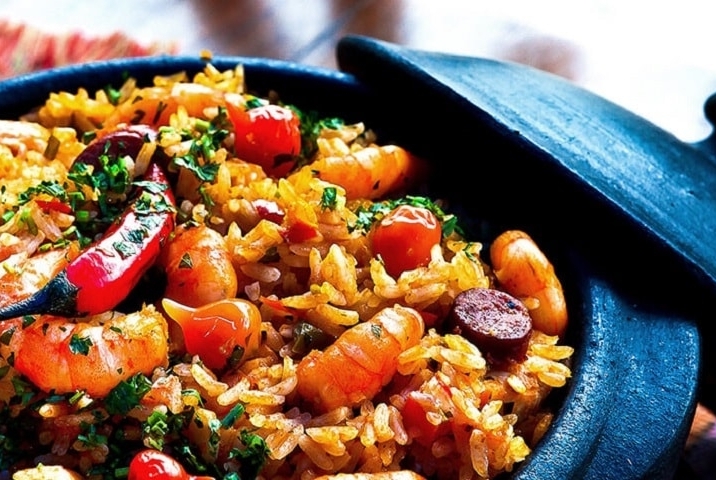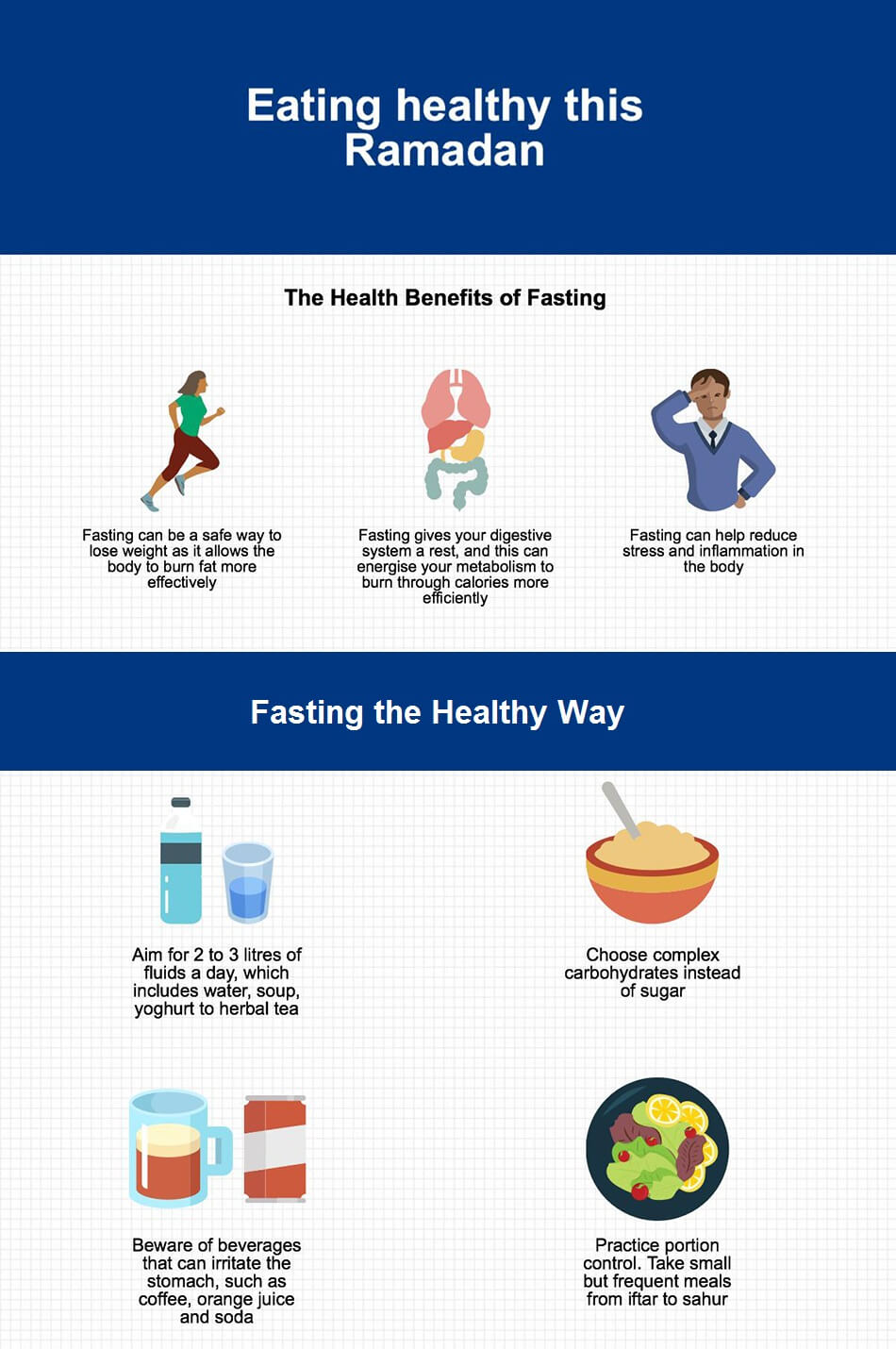The holy month of Ramadan is a time of devotion and contemplation, as well as the strengthening of family and community ties. All over the world, Muslims fast by abstaining from food, water, and other behaviours deemed sinful when the sun is up. For Malaysians, iftar — or breaking fast— also ushers a time of celebration and communion, one in which families gather for a feast or communities tread along the bustling Ramadan bazaar for their loot of snacks and traditional foods.
While iftar marks the time for a feast, the holy month is also a time to practice moderation— all for the good of one’s health. As you fast from dawn to dusk, your eating habits will alter the way your body functions and responds to fatigue and stress. In this light, maintaining a healthy eating habit will be crucial in up-keeping your wellbeing.
Here's what you need to know about fasting and eating healthily for Ramadan.










